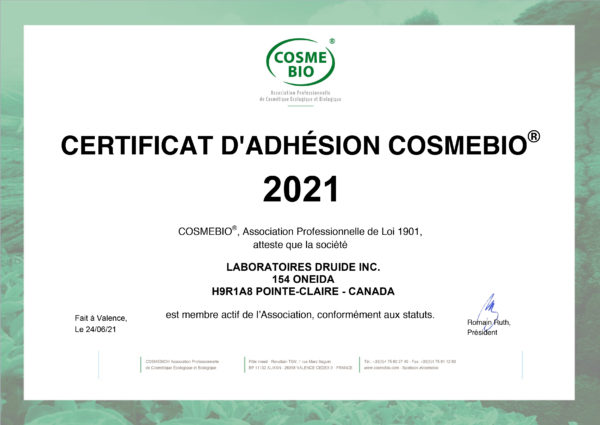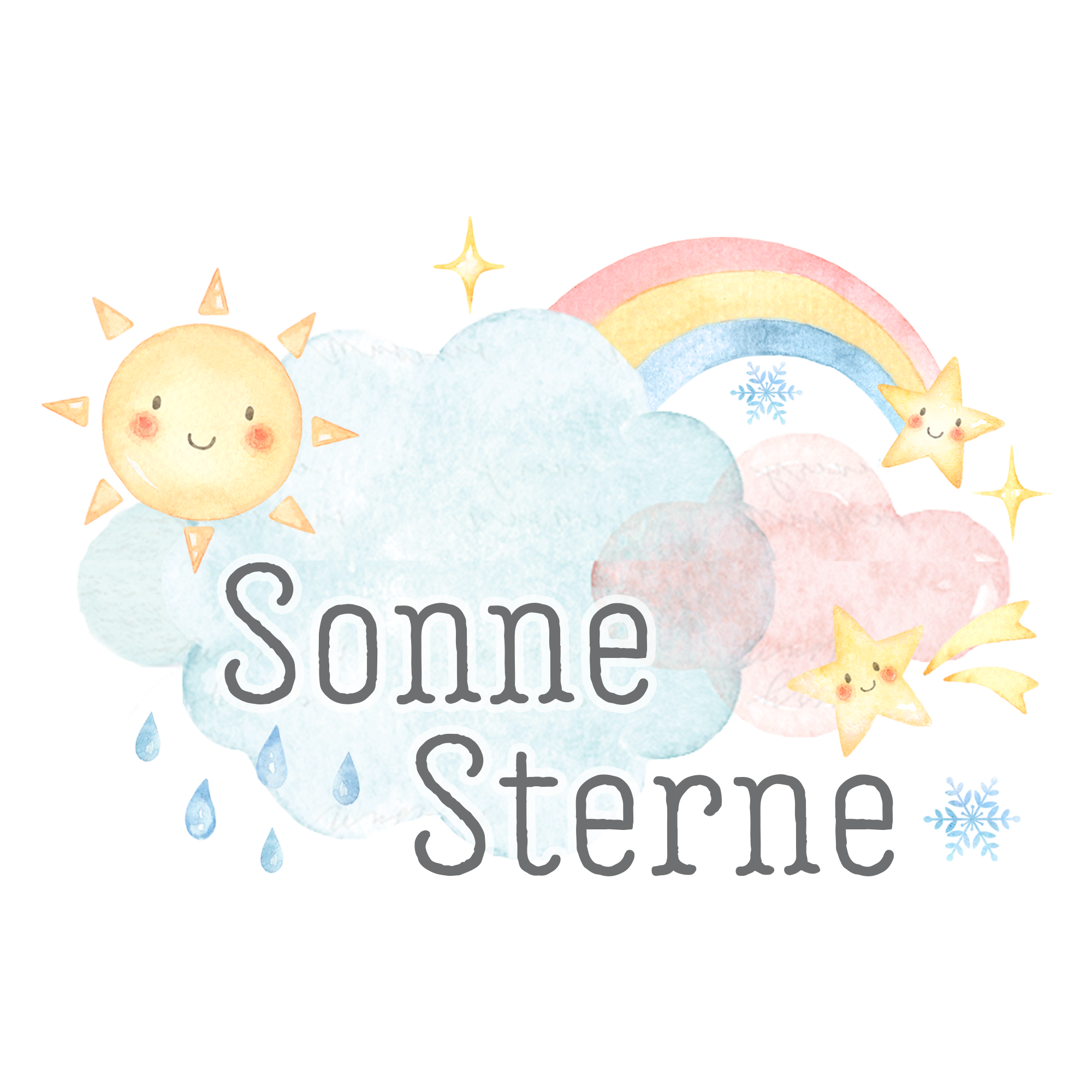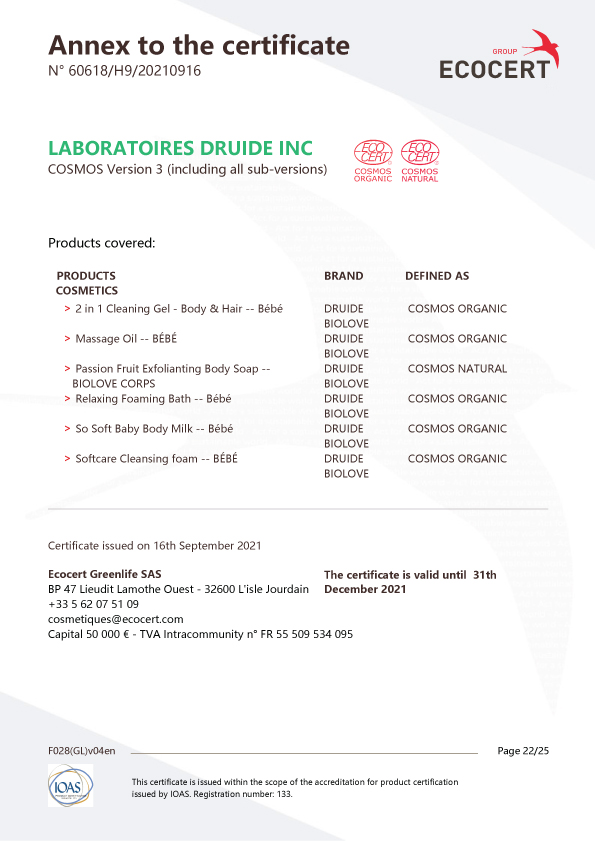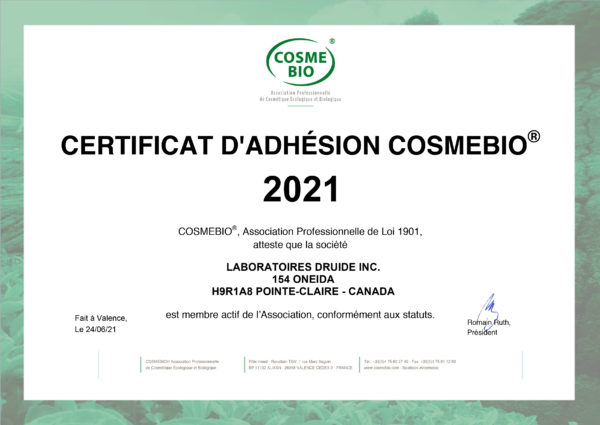No products in the cart.
ECOCERT® Label and Certification
Baby Skin Care Products that are certified according to Canadian international standards

ECOCERT® is an independent and accredited organization for the certification and control of ecological and biological products whether for food or cosmetics or whether the products come from organic farming as a result of fair trade or from sustainable development. ECOCERT® also certifies organic textiles as well as some carbon compensation projects through VCS (Verified Carbon Standard) and Gold Standard. It should be known that the certification of products from organic farming alone accounts for 75% of ECOCERT® turnover in the world.
The rigor of ECOCERT® has earned them the trust and confidence of consumers, and established for them that the ECOCERT® label is a guarantee for the quality of their product(s). In addition, ECOCERT® controls all the factors involved in the production chain of ecological or organic products whether at the level of production itself or at the marketing level of the ecological and biological products (including labeling).
Created in 1991, ECOCERT® was a result of an associative movement of several European countries that wished to harmonize the regulation of organic products and in particular cosmetic products. However, it was only in 2002 that ECOCERT® created the very first reference for organic cosmetics. This repository is based on 3 fundamental principles:
- The use of ingredients from renewable sources and processed by environmentally friendly processes.
- ECOCERT certified both ecological formulas and biological formulas, the latter being more restrictive.
- Manufacturing companies such as distributors and subcontractors are regularly audited.
In Canada, ECOCERT® activities began in Quebec in 1995 with GarantieBio, which eventually joined forces with ECOCERT® in 1997 to form ECOCERT® Canada.
ECOCERT® is today the most rigorous certification process with the highest requirements; it is also the most recognized and most widespread certification on the planet; as a result, ECOCERT® currently has 23 subsidiaries in 80 countries around the world.
Since January 1, 2017, ECOCERT® has become COSMOS (acronym for Cosmetics Organic Standard) for cosmetic products. Once again, 5 European agencies including ECOCERT® Green life SAS and Cosmebio for France, BDIH for Germany, ICEA for Italy and Soil Association in England have come together to form a non-profit association, with the aim of defining common minimum requirements to harmonize the certification rules for organic and natural cosmetics and finally to lobby the institutions to defend the sector. The COSMOS standard reflects those established by ECOCERT® however, some modifications have been made including:
- Promoting the use of products from organic farming and having respect for biodiversity.
- The responsible use of natural resources and a respect for the environment.
- The use of clean manufacturing processes that respect human health and the environment.
- The integration and development of the concept of Green Chemistry or Ecological Chemistry. This last point consists of providing for the implementation of principles, to reduce and eliminate the use or generation of substances which are harmful to the environment, by new processes and “clean” chemical reactions, that is to say, that are respectful of the environment. A prime example is the preparation of plant extracts by the Supercritical Fluid Extraction (SFE) technique, the best known of which is supercritical CO2 extraction.
The COSMOS standard, like that of ECOCERT, covers all aspects of the supply, manufacture, marketing and control of cosmetic products.
The main change to the COSMOS standard concerns certain certified organic cosmetics; in effect, the minimum total of ingredients that must come from organic farming, has gone from 10 to 20% of all products, with the exception of rinsing products (such as shampoos, shower gels and liquid soaps) and lotions and products containing at least 80% of minerals or ingredients of mineral origin, for which at least 10% of the total product must be organic.



